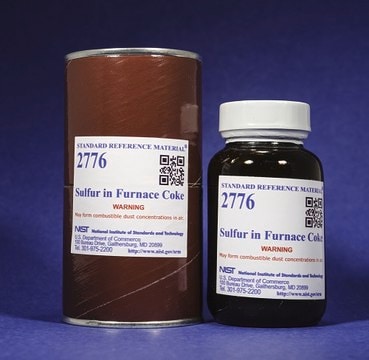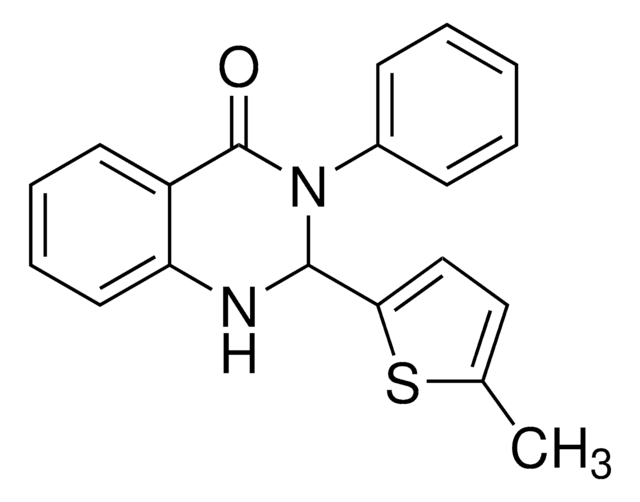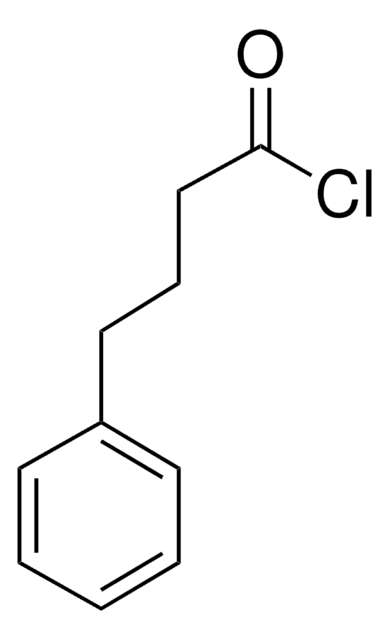P21005
4-Phenylbutyric acid
99%
Synonym(s):
γ-Phenylbutanoic acid, ψ-Phenylbutanoic acid, 4-Phenyl-n-butyric acid, 4-Phenylbutanoic acid, Benzenebutyric acid
Sign Into View Organizational & Contract Pricing
All Photos(2)
About This Item
Linear Formula:
C6H5(CH2)3COOH
CAS Number:
Molecular Weight:
164.20
Beilstein:
638180
EC Number:
MDL number:
UNSPSC Code:
12352100
PubChem Substance ID:
NACRES:
NA.22
Recommended Products
Quality Level
Assay
99%
form
crystals
bp
165 °C/10 mmHg (lit.)
mp
49-51 °C (lit.)
SMILES string
OC(=O)CCCc1ccccc1
InChI
1S/C10H12O2/c11-10(12)8-4-7-9-5-2-1-3-6-9/h1-3,5-6H,4,7-8H2,(H,11,12)
InChI key
OBKXEAXTFZPCHS-UHFFFAOYSA-N
Looking for similar products? Visit Product Comparison Guide
General description
4-Phenylbutyric acid (4-PBA) is used in the treatment of urea cycle disorders.
Application
4-PBA has been used as a selective inhibitor of endoplasmic reticulum stress (ERS).
It can also be used as a reactant in the synthesis of:
It can also be used as a reactant in the synthesis of:
- 1-Tetralone using Lewis acid catalyst.
- 4,N-diphenylbutyramide.
Storage Class Code
11 - Combustible Solids
WGK
WGK 3
Flash Point(F)
Not applicable
Flash Point(C)
Not applicable
Personal Protective Equipment
dust mask type N95 (US), Eyeshields, Gloves
Choose from one of the most recent versions:
Already Own This Product?
Find documentation for the products that you have recently purchased in the Document Library.
Customers Also Viewed
The therapeutic effects of 4-phenylbutyric acid in maintaining proteostasis.
Kolb PS, et al.
The International Journal of Biochemistry & Cell Biology, 61, 45-52 (2015)
Induction of apoptosis coupled to endoplasmic reticulum stress through regulation of CHOP and JNK in bone marrow mesenchymal stem cells from patients with systemic lupus erythematosus
Guo G, et al.
Journal of immunology research (2015)
Karin Eigner et al.
Scientific reports, 7(1), 17498-17498 (2017-12-14)
The mechanisms hallmarking melanoma progression are insufficiently understood. Here we studied the impact of the unfolded protein response (UPR) - a signalling cascade playing ambiguous roles in carcinogenesis - in melanoma malignancy. We identified isogenic patient-derived melanoma cell lines harboring
Yu-Yang Ma et al.
Acta pharmacologica Sinica, 41(3), 404-414 (2019-11-09)
Xanthatin is a natural sesquiterpene lactone purified from Xanthium strumarium L., which has shown prominent antitumor activity against a variety of cancer cells. In the current study, we investigated the effect of xanthatin on the growth of glioma cells in
Synthesis of 1-tetralones by intramolecular Friedel?Crafts reaction of 4-arylbutyric acids using Lewis acid catalysts
Cui DM, et al.
Tetrahedron Letters, 44(21), 4007-4010 (2003)
Our team of scientists has experience in all areas of research including Life Science, Material Science, Chemical Synthesis, Chromatography, Analytical and many others.
Contact Technical Service














